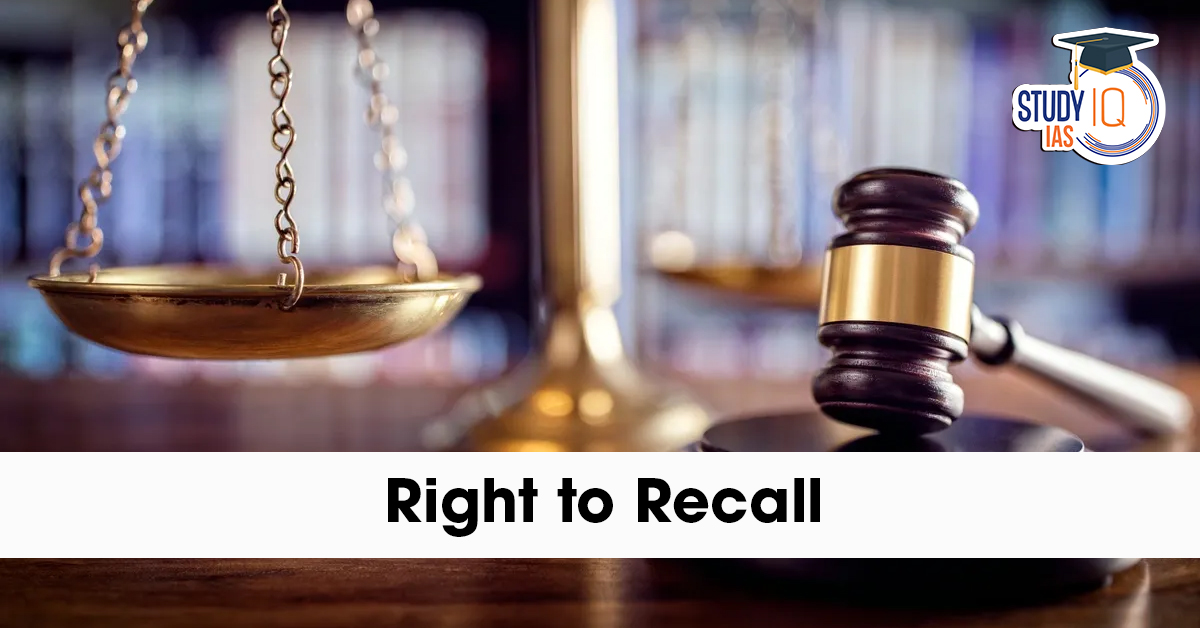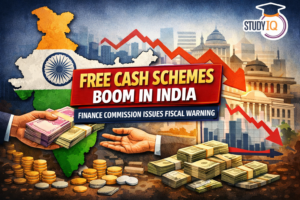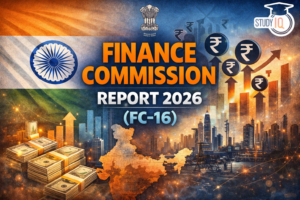Table of Contents
Context
Recently, thousands of citizens gathered in Taipei to participate in a massive pro-recall rally, demanding accountability from elected representatives. At the heart of this democratic action is the Right to Recall — a mechanism that allows voters to remove elected officials from office before the end of their term. The protests signal growing global discourse around participatory democracy and public oversight.
What is a Recall Election?
A recall election is a political process that enables citizens to remove an elected official from office before the completion of their term. Here’s how it works:
-
Initiation: A recall begins when a specific number of voters sign a petition requesting the removal.
-
Trigger Point: If the petition meets legal requirements, a recall election is conducted.
-
Direct Democracy: Voters then decide through a ballot whether the official should be removed or allowed to continue.
Historical Origins
-
Ancient Athens: The concept finds its roots in Athenian democracy, where the people could ostracize leaders deemed dangerous or ineffective.
-
Modern Usage:
-
United States: Several states including California, Oregon, and Michigan have recall provisions.
-
Canada: British Columbia adopted the recall mechanism in 1995.
-
Recall elections are often invoked on grounds such as misconduct, incompetence, or public dissatisfaction with governance.
Right to Recall in the Indian Context
Although India is the world’s largest democracy, the Right to Recall is not available at the state or national level. However, its conceptual roots and limited application exist in various forms:
Philosophical & Historical Foundations
-
Vedic Era Rajdharma: The king’s duty (Rajdharma) included welfare of the people, and rulers could be replaced if they failed to serve effectively.
-
M.N. Roy’s Vision (1944): Prominent thinker M.N. Roy advocated for partyless democracy, decentralization, and the right of people to recall elected representatives.
Legal Status in India
-
Representation of the People Act (ROPA), 1951:
-
Allows disqualification or vacation of office only in specific legal cases like conviction, corrupt practices, or defection.
-
No provision exists for recalling an MP or MLA due to incompetence or public dissatisfaction.
-
Somnath Chatterjee’s Proposal
The former Lok Sabha Speaker Somnath Chatterjee once supported the idea of introducing the Right to Recall to enforce greater accountability in parliamentary democracy.
Right to Recall at the Local Level
Some Indian states have implemented the Right to Recall at the panchayat (local governance) level:
| State | Level of Implementation | Relevant Act/Provision |
|---|---|---|
| Madhya Pradesh | Gram Panchayat | Madhya Pradesh Panchayat Raj Act |
| Bihar | Panchayati Raj | Bihar Panchayat Raj Act |
| Chhattisgarh | Panchayat Level | Chhattisgarh Panchayat Raj Adhiniyam |
Voters in these regions can initiate recall processes against Sarpanches (village heads) or municipal leaders on grounds such as non-performance or misconduct.
Arguments For and Against the Right to Recall
Arguments in Favour
-
Increased Accountability: Keeps representatives responsible to their voters throughout their tenure.
-
Strengthens Democracy: Promotes participatory and deliberative democracy.
-
Public Empowerment: Enhances citizen control over elected officials.
Arguments Against
-
Potential for Misuse: Political vendettas or mass mobilization could misuse the provision.
-
Administrative Burden: Frequent elections can disrupt governance.
-
Undermines Stability: Regular recalls may cause political instability and policy inconsistency.
Demand for Right to Recall in Modern India
In recent years, civil society activists and political commentators have renewed calls for institutionalizing the Right to Recall at higher levels of governance, including:
-
Electoral Reforms: Proposals to include recall provisions in the Representation of the People Act.
-
Digital Democracy Tools: Use of e-petitions and social media platforms to demand recall mechanisms.
-
Citizen Participation Models: Encouraging gram sabhas and urban local bodies to act as platforms for initiating recall processes.
Comparative Perspective: Global vs Indian Practice
| Country/Region | Right to Recall Available? | Level |
|---|---|---|
| United States | Yes | State Governors, Mayors, etc. |
| Canada (British Columbia) | Yes | Provincial level |
| Switzerland | Yes | Various Cantonal levels |
| India | Partially | Only at Panchayat/Municipal levels in select states |
Conclusion
The Right to Recall is a powerful tool that strengthens democratic accountability and participatory governance. While India’s democratic tradition philosophically supports such a mechanism, its legal and political system lacks provisions for recall at higher legislative levels. The Taiwan protests reflect a global shift toward more responsive governance, which could inspire India to revisit this concept for deepening democracy in the 21st century.


 World Cancer Day 2026: Theme, Date, Hist...
World Cancer Day 2026: Theme, Date, Hist...
 Free Cash Schemes Boom in India: Finance...
Free Cash Schemes Boom in India: Finance...
 Finance Commission Report 2026 (FC-16): ...
Finance Commission Report 2026 (FC-16): ...

























